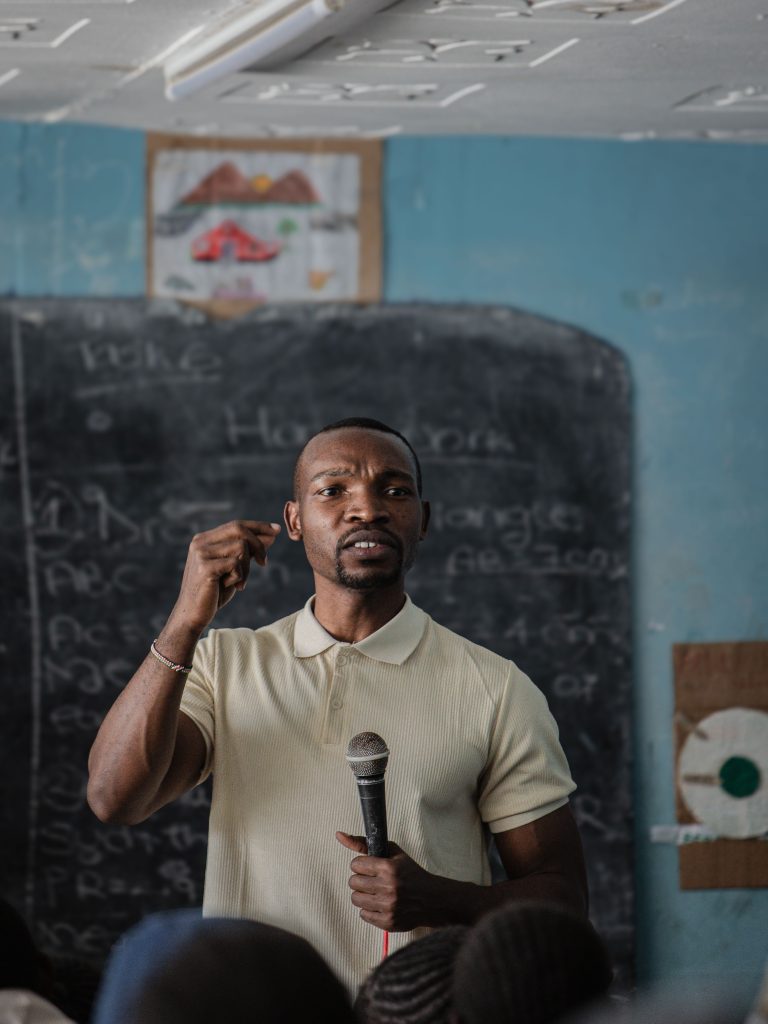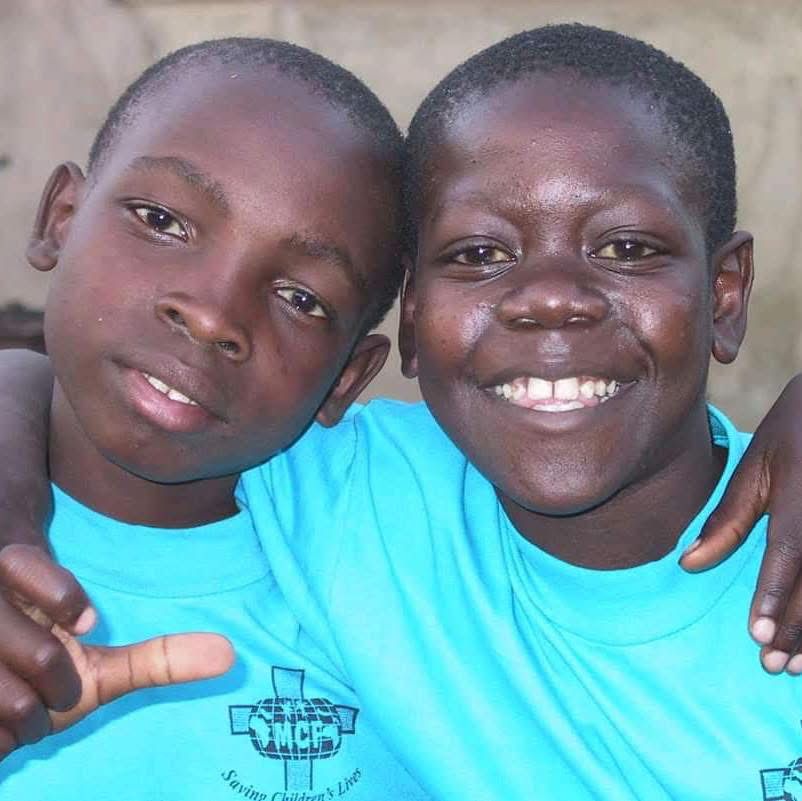DENNIS MAVIA

Dennis Mavia was born in a small village tucked in the green hills of Kakamega, Kenya. He was the youngest in a family of eight—an innocent baby boy who never got to know his biological parents. At just three months old, both his mother and father passed away, leaving him orphaned before he could even speak his first word.
But God, in His silent grace, had already placed someone in Dennis’s life who would become more than a guardian—his elder sister, Sarah. Though only a teenager herself, Sarah took Dennis into her arms and raised him as her own. Dennis grew up calling her “mother,” and to this day, he still does. In his heart, she is the only mother he has ever known.
Their lives took a harsh turn when greedy relatives forced the family to surrender what little land and belongings they had. With nothing left, Sarah gathered all eight siblings and made the painful decision to relocate to the Kibera slums in Nairobi. Life in Kibera was not kind. They lived in a tiny one-room house made of mud walls and rusted iron sheets. That cramped space was all they had. All eight of them slept on thin mats, crammed together, trying to find warmth in a place where hope was scarce. To ease the crushing burden, Dennis’s two older brothers left for the streets, scavenging and hustling to survive on their own. Some of his older sisters were forced into early marriages.

Through a family friend who saw their suffering, Dennis was introduced to a new home, Mully Children’s Family, run by the compassionate hands of Prof. Dr. Charles Mully and Mama Esther. There, Dennis found heaven on earth. He was given something he had never truly known before: safety. At Mully, he had food on his plate, a clean bed, the chance to go to school, and most importantly, a community rooted in love and faith in Jesus Christ.
It was at Mully that Dennis not only found his footing but also healed spiritually. The teachings of forgiveness were constant. And even though his relatives had driven them from their home and broken their family, Dennis felt God slowly softening his heart. He forgave. He made peace. He found healing in the arms of grace.
At Mully, Dennis completed both his primary and secondary education. And just when it seemed like his chapter at the orphanage had come to a close, God opened yet another door. A kind and generous American couple, Linda and Timothy Eagle, crossed paths with Dennis and were deeply moved by his story, character, and unwavering faith. They chose to support him as their own son, becoming a permanent part of his life and funding his university education at Daystar University.

But throughout all these seasons of change, Kibera never left his heart. As a child in the slum, Dennis had noticed something that disturbed him deeply. While boys ran off to school, many girls stayed home, not because they didn’t want to learn, but because of shame, lack of sanitary products, and poor hygiene. The sight of teenage girls missing out on education simply because they were menstruating stuck with him. He used to whisper to himself, “One day, I will come back and help my people. I don’t know how, but God will make a way.”
That way came in the form of a simple text message. The message lit a fire in Dennis’s spirit. And from that small spark, Desh Care International was born.
What began as a dream became a movement, an organization dedicated to restoring dignity, education, and spiritual purpose to young girls suffering in silence. Desh Care now serves thousands of girls, providing free sanitary products, hygiene education, mentorship, and spiritual guidance, especially in places like Kibera, where the need is greatest.
Today, Dennis is not just a founder. He is a bridge between pain and healing, a voice for the forgotten, and a living testimony that where you start does not define where you will go. He continues to walk closely with the community, often mentoring youth, organizing fitness sessions for his friends, and spending time with Loki, his loyal German Shepherd and sidekick. He remains grounded, humble, and fiercely dedicated to the people he once lived beside in a one-room home made of mud and rust. This clearly shows that from brokenness can come beauty, and from one act of kindness, a generation can be changed.

